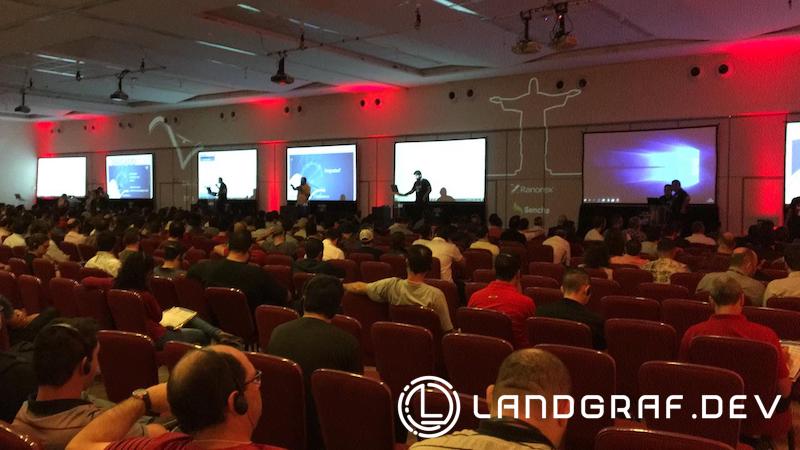
On October 22nd, 2019, there will be another edition of Embarcadero Conference. It’s the biggest Delphi event of the world, and happens in São Paulo, Brazil. There are hundreds of attendants.
In this edition, just like last year, there will be seven simultaneous sessions, all happening in the same auditorium. You choose which session to listen by selecting the audio channel in your headphones. The full session list is available in the site of the event.


